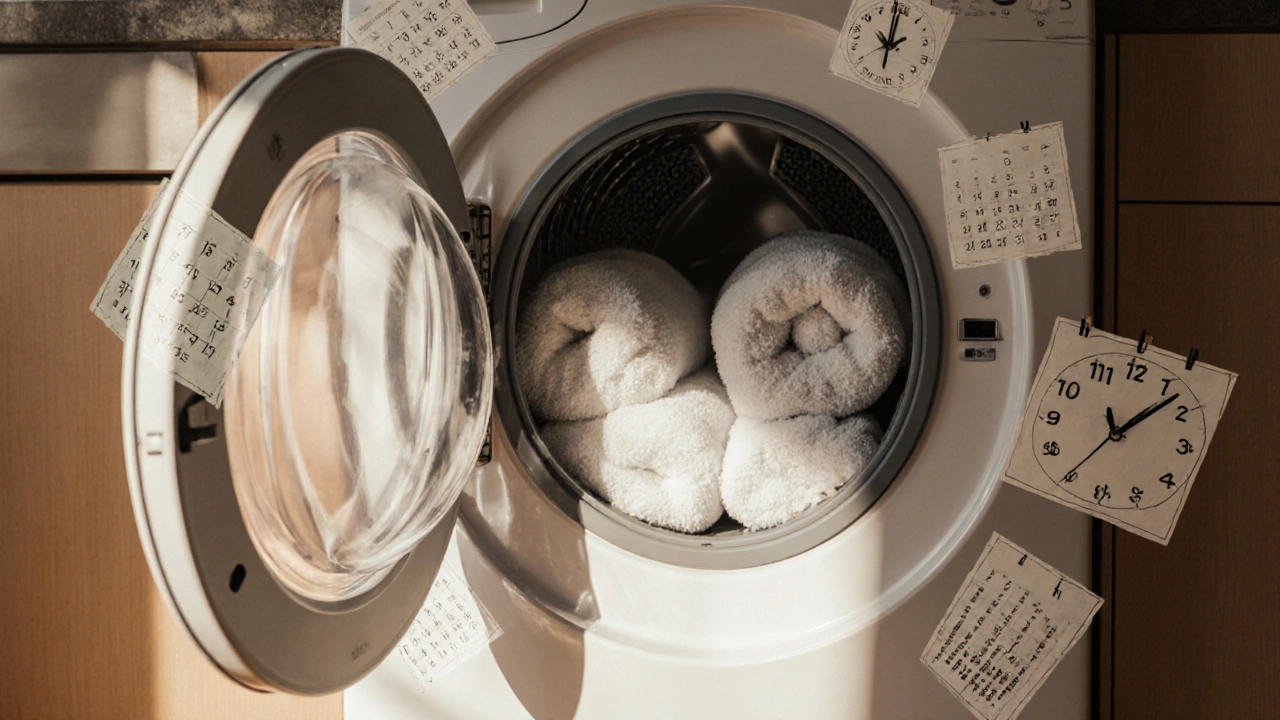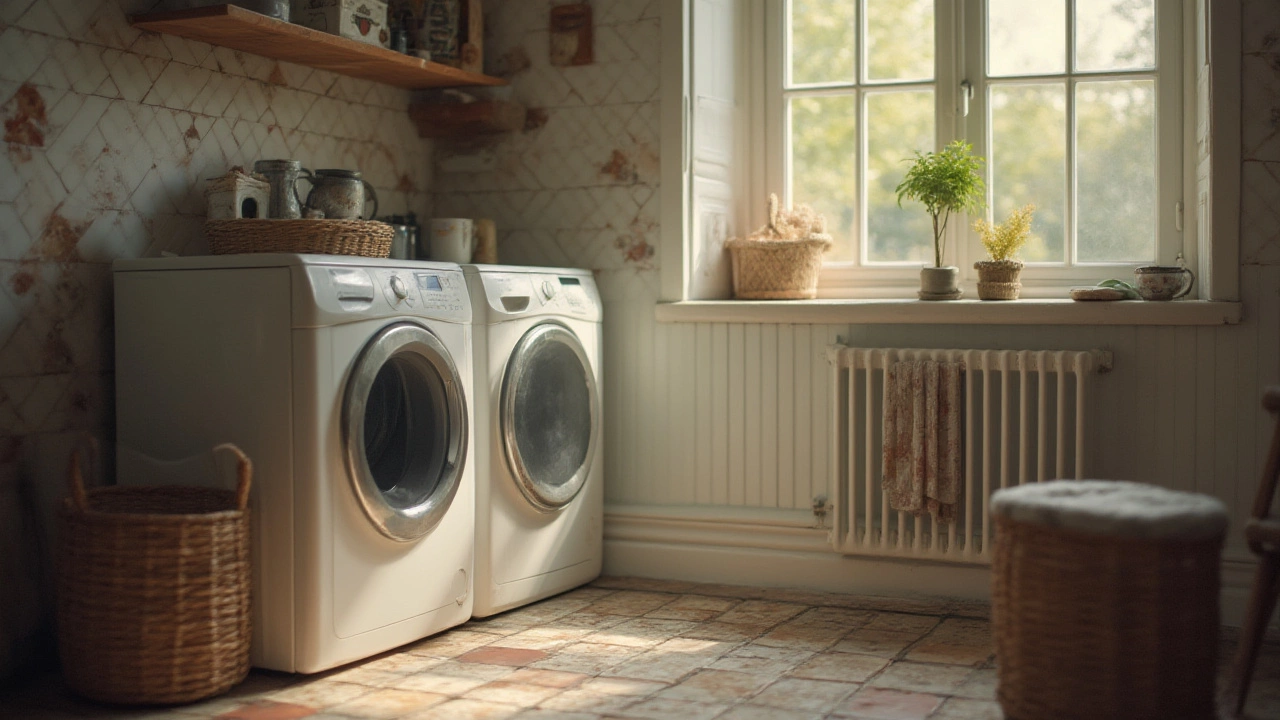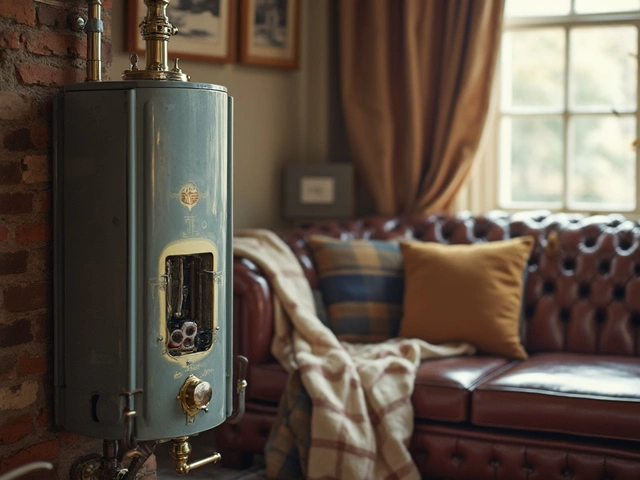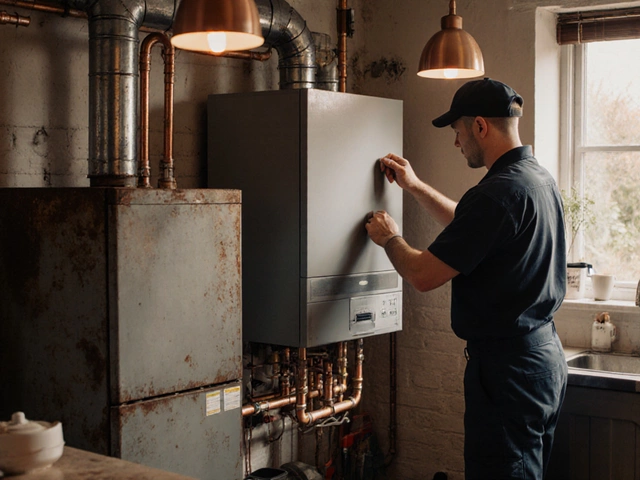We all hate spending money on a new fridge or boiler when the old one could still do the job. The good news? Most appliances live far beyond their warranty if you treat them right. Below are down‑to‑earth habits that add years to your washing machine, oven, heat pump, and the rest of your home gear.
Every appliance has a built‑in wear limit, but that limit is often set by how you use and look after it. A neglected fridge can lose cooling power in a few months, while a well‑maintained heat pump can keep your house warm for a decade. Longer life means lower bills, fewer trips to the repair shop, and a smaller environmental footprint.
Think of your appliances like a car – regular check‑ups, clean filters, and gentle handling keep the engine humming. Skip those steps, and you’ll hear whirring noises, see error codes, and eventually face a pricey replacement.
1. Clean Filters Regularly – Whether it’s a dishwasher, extractor fan, or heat pump, filters trap dust and debris. A quick wipe every month stops the motor from overworking and improves efficiency.
2. Keep Vents Unblocked – Space heaters, ovens, and even water heaters need clear airflow. Make sure nothing sits in front of vents; give them a few inches of breathing room.
3. Follow Manufacturer Guidelines – The user manual isn’t just legal talk. It tells you the right temperature settings, recommended load sizes, and cleaning cycles. Ignoring these can stress components early.
4. Run Regular Maintenance Checks – Schedule a quick inspection once a year. Look for rust, loose wires, or strange noises. Early detection of a cracked oven element or a failing boiler valve can save you from a full‑blown breakdown.
5. Use the Right Power Settings – Many appliances have an “eco” mode. Running a dishwasher on a cold wash or an oven at a lower temperature when possible reduces wear on heating elements.
6. Don’t Overload – Packing a washing machine or dryer to the brim forces motors to work harder. Stick to the recommended load limits for smoother cycles and longer parts life.
7. Address Small Problems Fast – A humming fridge, a flickering oven display, or a heat pump that won’t blow warm air are early warnings. Fixing them quickly prevents bigger failures later.
By integrating these habits into your weekly routine, you’ll notice fewer cold showers, fewer “oven not heating” alerts, and a quieter kitchen overall.
Remember, every appliance you own has a story. With a little care, that story can stretch from “just bought” to “still running after ten years.” So grab a cloth, check that filter, and give your home the longevity it deserves.

Learn how long vented, condenser and heat‑pump tumble dryers typically last, what factors affect their lifespan, and how regular maintenance can add years.

Is your washing machine considered old? Learn the real lifespan, signs it's aging, and pro tips to keep it running longer. Get real facts and advice from an expert.

Choosing a cooker that stands the test of time can be daunting amid a sea of brands promising longevity. This article delves into which brands have stood out for their durability and reliability. By exploring user experiences and industry insights, it aims to guide you in the right direction. Discover how some brands maintain their reputation for endurance and what to consider when selecting your next appliance.

Experiencing no hot water in the shower can be frustrating, especially on cold mornings. This article provides practical solutions to diagnose and resolve common issues with your water heating system. From checking simple things like the thermostat to identifying more complex issues like a faulty heating element, you'll learn how to get back to enjoying a warm shower.

When your boiler breaks down, taking a comfortable shower suddenly feels like a luxury. This article explains exactly what happens to your shower when a boiler goes out, ways to still get clean, and when you should call in a professional. Learn alternative methods for washing, bust some myths about cold showers, and get tips on preventing future breakdowns. We even cover what to do if you have kids or need to keep up with fitness routines. Staying clean during a crisis isn’t impossible—you just need a bit of know-how and some creative solutions.

Water heaters don't last forever, so it’s important to know how long yours might stick around. Generally, these devices are built to last about 8 to 12 years, but several factors can influence their longevity. By understanding signs of wear, maintenance tricks, and when it's time to say goodbye to your old model, you can ensure hot showers won't become a thing of the past. Let's break down everything you need to know about your water heater's lifespan.

Thinking of how long your gas hob will last? Dive into the expected lifespan of gas hobs, factors that affect their longevity, and simple maintenance tips. Discover how regular care can stretch your appliance's life and understand when it's time to consider repair or replacement. Make informed decisions to keep your culinary adventures flaming well.

Find out how much a new boiler costs in 2025, including prices by type, installation fees, rebates, and how to avoid overpaying. Learn when to replace your boiler and what to look for in a quote.